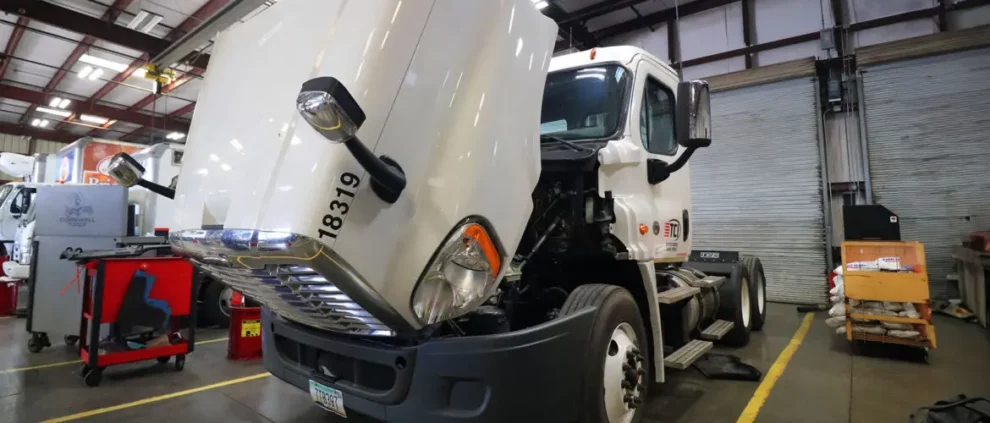Running a small business fleet requires careful attention to detail, strategic planning, and robust management practices. Whether managing a handful of delivery vans or a larger collection of service vehicles, effective fleet management can significantly impact your business’s bottom line while ensuring safety and efficiency remain top priorities.
Understanding Fleet Management Fundamentals
Small business fleet management encompasses more than simply maintaining vehicles and tracking their whereabouts. Modern fleet management requires a comprehensive approach that considers vehicle acquisition, maintenance scheduling, driver safety, fuel efficiency, and regulatory compliance. Success in these areas can lead to reduced operational costs, improved service delivery, and enhanced business reputation.
Vehicle Selection and Acquisition
Choosing the right vehicles forms the foundation of successful fleet management. Smart vehicle selection involves careful consideration of several factors beyond initial purchase price. Fuel efficiency, maintenance costs, resale value, and suitability for intended use all play crucial roles in the total cost of ownership. Many successful small businesses find that standardizing their fleet with similar vehicle makes and models simplifies maintenance procedures and reduces parts inventory requirements.
Lease versus purchase decisions deserve careful consideration based on your business’s specific circumstances. Leasing often provides more flexibility and predictable monthly costs, while purchasing might prove more economical over the long term. Tax implications and cash flow considerations should factor into this decision-making process.

Maintenance Strategy Development
Preventive maintenance serves as the cornerstone of effective fleet management. Developing a comprehensive maintenance schedule helps prevent unexpected breakdowns, extends vehicle life, and maintains safety standards. Modern fleet management software can track maintenance intervals, automatically schedule service appointments, and maintain detailed service records for each vehicle.
Regular maintenance checks should include fluid levels, brake systems, tire condition, and engine performance monitoring. Establishing relationships with reliable service providers can ensure consistent maintenance quality while potentially securing better rates through volume pricing agreements.
Technology Integration
Modern fleet management relies heavily on technology solutions that provide real-time insights into vehicle operation and location. GPS tracking systems offer numerous benefits, from route optimization to improved customer service through accurate arrival time predictions. These systems also help monitor driver behavior, identify inefficient routes, and provide documentation for billing and regulatory compliance.
Telematics systems provide valuable data about vehicle performance, fuel consumption, and driving patterns. This information helps identify opportunities for efficiency improvements while highlighting potential maintenance issues before they become serious problems.
Driver Management and Safety
Professional drivers represent both a significant asset and potential liability for small business fleets. Implementing comprehensive driver screening and training programs helps ensure safety while reducing insurance costs and liability exposure. Regular safety meetings, performance reviews, and ongoing training sessions help maintain high standards of professionalism and safety awareness.
Clear policies regarding vehicle use, maintenance responsibilities, and safety procedures should be documented and regularly reviewed with all drivers. Many businesses find success with incentive programs that reward safe driving practices and fuel-efficient operation.
Fuel Management Strategies
Fuel costs often represent one of the largest operational expenses for small business fleets. Implementing effective fuel management strategies can significantly impact overall profitability. Fuel card programs provide detailed tracking of fuel purchases while often offering rebates or volume discounts. Regular analysis of fuel consumption patterns can identify opportunities for improvement through route optimization or driver behavior modification.
Alternative fuel vehicles might offer long-term cost savings while supporting environmental sustainability goals. Careful evaluation of operating patterns and available infrastructure can help determine whether electric or hybrid vehicles might benefit your fleet operations.
Cost Control and Budget Management
Effective fleet management requires careful attention to costs at every level. Implementing standardized procedures for purchasing, maintenance, and repairs helps control expenses while ensuring consistent service quality. Regular analysis of operating costs per vehicle helps identify problems early while providing valuable data for future vehicle selection decisions.
Vehicle replacement timing significantly impacts overall fleet costs. Developing a strategic replacement schedule based on vehicle age, mileage, and maintenance costs helps optimize the balance between acquisition costs and operating expenses.
Regulatory Compliance
Small business fleets must navigate an increasingly complex regulatory environment. Maintaining accurate records of driver qualifications, vehicle inspections, and maintenance activities helps ensure compliance with local, state, and federal requirements. Electronic logging devices and other compliance tools can simplify record-keeping while reducing administrative burden.
Insurance considerations also play a crucial role in fleet management. Regular review of coverage levels and deductibles helps ensure appropriate protection while controlling costs. Many insurers offer premium discounts for fleets with strong safety programs and clean driving records.
Environmental Considerations
Growing environmental awareness and regulatory requirements make sustainability an increasingly important aspect of fleet management. Implementing green initiatives through proper vehicle maintenance, route optimization, and gradual transition to more fuel-efficient vehicles can reduce environmental impact while potentially lowering operating costs.
Many businesses find that promoting their environmental initiatives enhances their public image while meeting growing customer expectations for sustainable business practices.
Performance Monitoring and Analysis
Regular performance monitoring helps identify areas for improvement while documenting the success of management initiatives. Key performance indicators might include fuel efficiency, maintenance costs per mile, on-time delivery rates, and safety metrics. Regular review of these metrics helps guide management decisions while demonstrating the value of fleet management programs.
Building Long-term Success
Successful fleet management requires ongoing commitment to continuous improvement. Regular review of policies, procedures, and performance metrics helps identify opportunities for enhancement while ensuring management practices evolve with changing business needs and technological capabilities.
Establishing strong relationships with key vendors, service providers, and drivers creates a foundation for long-term success. Regular communication with all stakeholders helps ensure alignment with business objectives while maintaining high standards of performance and safety.
Small business fleet management presents numerous challenges, but careful attention to these fundamental areas can lead to significant improvements in efficiency, safety, and profitability. Success requires balancing multiple priorities while maintaining focus on long-term business objectives. By implementing comprehensive management strategies and leveraging available technologies, small businesses can develop fleet operations that support sustainable growth while controlling costs and maintaining high service standards.
















Add Comment